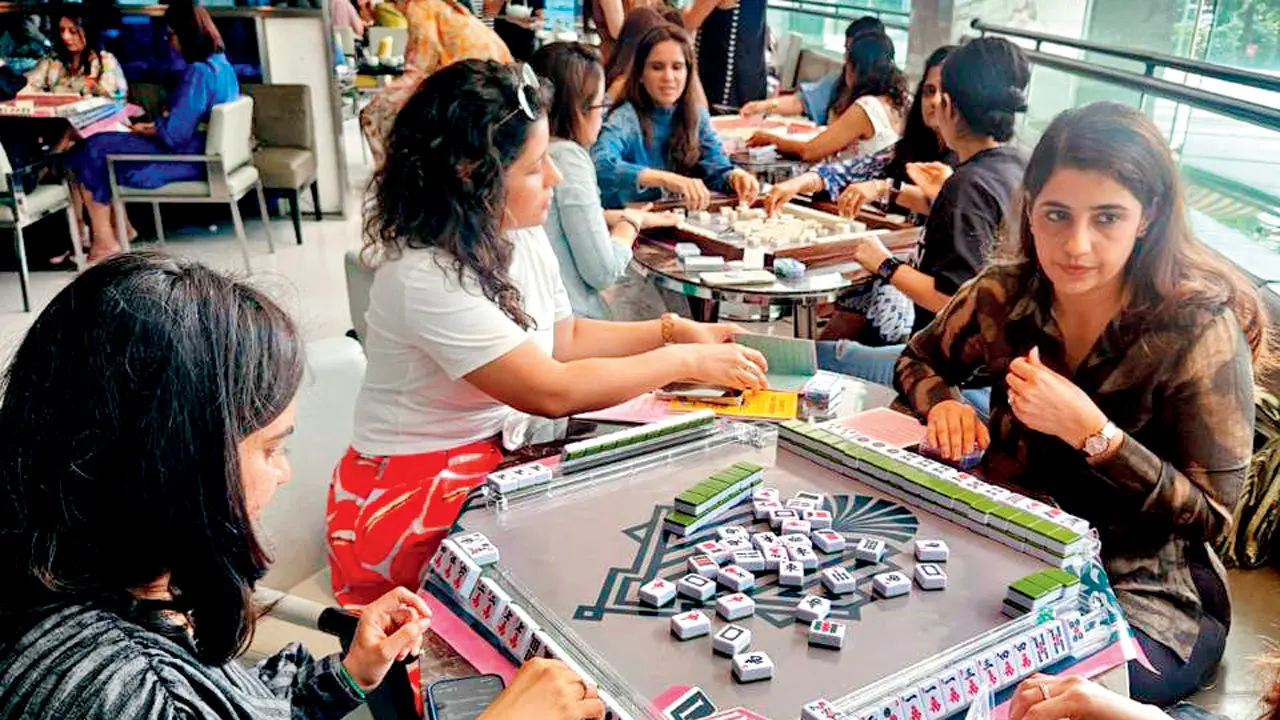
At a time when gadgets have become a quintessential part of every child’s growing experience — from education to games — the thought of these very devices being tapped by predators can be a troubling one for parents. While many dismiss this as an ‘other people’ problem, the threat is closer and prescient than most would admit. That’s why Bollywood actor Akshay Kumar’s recent admission of his 13-year-old daughter Nitara encountering a predator while playing an online game comes as a reality check.
Elaborating on the incident, Kumar said that while the messages were initially polite and innocuous, the tone soon changed with the predator demanding naked pictures from the child. His narration echoes a similar incident that was reported by mid-day only a few days ago, in which a SoBo teen was blackmailed over WhatsApp into sending obscene photos by a nameless predator.
At a recent interaction, actor Akshay Kumar spoke about his daughter Nitara’s run-in with cyberstalking. Pic Courtesy/@akshaykumar
“Many parents have denial embedded in their psyche that this type of crime cannot happen to them because they are not famous or extremely rich and powerful. The truth is much starker as the criminals’ target all those who access these links and sites, irrespective of their status, power or wealth. These criminals are intent on getting their hands on private information such as photos that can be used to further their and their clients’ gratification, or to swindle money from innocent users. Parents must wake up and get over their own reservations. This paves the way for active research about such crimes and their prevention,” says Lt Colonel Omar Pathare (retd.), a security consultant at Fortify Security Consulting.
Web of deception
Cybercrimes involving children have unfortunately become both frequent and sophisticated. According to the National Crime Records Bureau (NCRB), cybercrimes against children in India have risen by more than 60 per cent in the past three years. Globally, Interpol and UNICEF report that children aged between 10 and 16 are increasingly targeted through gaming apps, social media, and chat forums, remarks Rakesh Raghuvanshi, founder & CEO of Sekel Tech. Shubham Singh, a cybersecurity expert, admits that cybercrimes against children have become increasingly common worldwide.
Omar Pathare and Oshma
The most common types of crimes include cyberbullying and harassment through social media or gaming platforms, online grooming and sexual exploitation where the predators build trust to manipulate or coerce children, sextortion using real or fake intimate images, and identity theft of a child’s information to create fake accounts or financial fraud. “The prevalence of AI has furthered the types of scams and made them more intricate. For instance, we’re seeing AI being misused to create fake videos or images used to embarrass, blackmail, or exploit children. Finally, children can also become easy targets for phishing and scams, which operate by luring them to click on fake links, or sign up for contests or offers that eventually steal data or money,” he explains.
Teach them young
“Parents must first understand the platforms their children are using — whether it’s Instagram, Roblox or Snapchat. Many parents are digitally unaware, and that’s where the gap begins. They should spend time learning about privacy settings, digital footprints, and the signs of online manipulation,” says Raghuvanshi. A simple but powerful method is ‘co-learning’, which involves being present with the child during their screen time and discussing what’s safe to share and what’s not. Schools and PTAs can also hold digital hygiene workshops every term to create awareness among both students and parents, he suggests.
Parents must work closely and bond with their children to ensure their online safety
“Given the ease of accessibility of information on-line for children these days, parents need to be very specific and time their conversations in a way that is proactive and not reactive. This means, it should not be instructional and ‘preachy,’ but also about respecting the children’s aspirations of becoming independent, since a large part of this independence in the pre-teen and teenage years involves device usage.
Therefore, it is important to have regular conversations based on facts. To abruptly ‘spring’ this up on children usually makes the session feel one dimensional and a monologue rather than a dialogue, and this can sometimes leave the young adult feeling isolated. Many adults do not empathise with the peer pressure that children face. I recommend allowing children to share what they’re going through with adults, during periods when they are consuming a lot of data online — be it gaming, chatting or even following influencers,” shares Fatema Agarkar, educationist and advisor to Finland International School board.
Fatema Agarkar and Rakesh Raghuvanshi
She adds that an overreliance on screens typically stems from a deeper underlying cause, which could include social awkwardness, bullying, body shaping or simply low self-esteem. Listening to your children can help address the root problem. You can then layer this with conversations about ‘what to watch out for’, which will be much better received than telling them ‘What they can’t do’. “Assign responsibility to your children by discussing pros and cons. Without making it scary, share case studies through book narratives, podcasts or even films — this helps to create a more inclusive environment, where the idea is to keep the child safe and feeling in control,” she says.
Set up a safety net
A combination of technical controls and good communication works best, when it comes to protecting your child from online threats, observes Singh. “Use parental controls and safe search filters to block adult or harmful content. Further, enable privacy settings on all apps and disable location sharing. Keep devices in common areas for younger kids to encourage supervision, and set time and usage rules that govern when and how long they can use devices. Ensure that passwords are strong and enable two-factor authentication to protect accounts. Monitor online activity respectfully. Also review friend lists, downloads and chats from time to time,” he suggests.
Shubham Singh
If you do come across any instances of abuse, reporting it within the ‘golden hour’ or within one hour after the crime has occurred can greatly improve chances of any stolen money being recovered, as was emphasised by Maharashtra CM Devendra Fadnavis. Two helplines have been dedicated to cybercrimes — 1930 and 1945.
Additionally, Pathare, who is father to 10-year-old Oshma, says that he had a candid conversation with his daughter as soon as she was allowed access to the internet about ‘red flags’ that had to be reported immediately. “Some of these are pop-ups that come in between playing the game advertising games of chance and prize money, as well as pop-ups that have arrows or toy icons to be clicked to find a hidden prize.
I am also wary about embedded ads within a game — while not ads are malicious, as some are onboarded by game developers themselves for promotion of products, there are certain ads that may show popular cartoon characters telling the child to click the button to get more points, credits or game gold while playing. The ads should be immediately shown to the parent as most of them contain malicious links that lead the child towards seemingly innocent sites displaying toys or kiddie games but are designed to steal personal data,” he explains.
Additionally, his daughter is not allowed to share any photos of herself on gaming sites and does not have access to social media. “For gaming sites, she has been advised to use avatars that are auto-generated by the game and to use random initials and numbers to identify herself as a user, which will not give out her name, age or gender,” he concludes.










